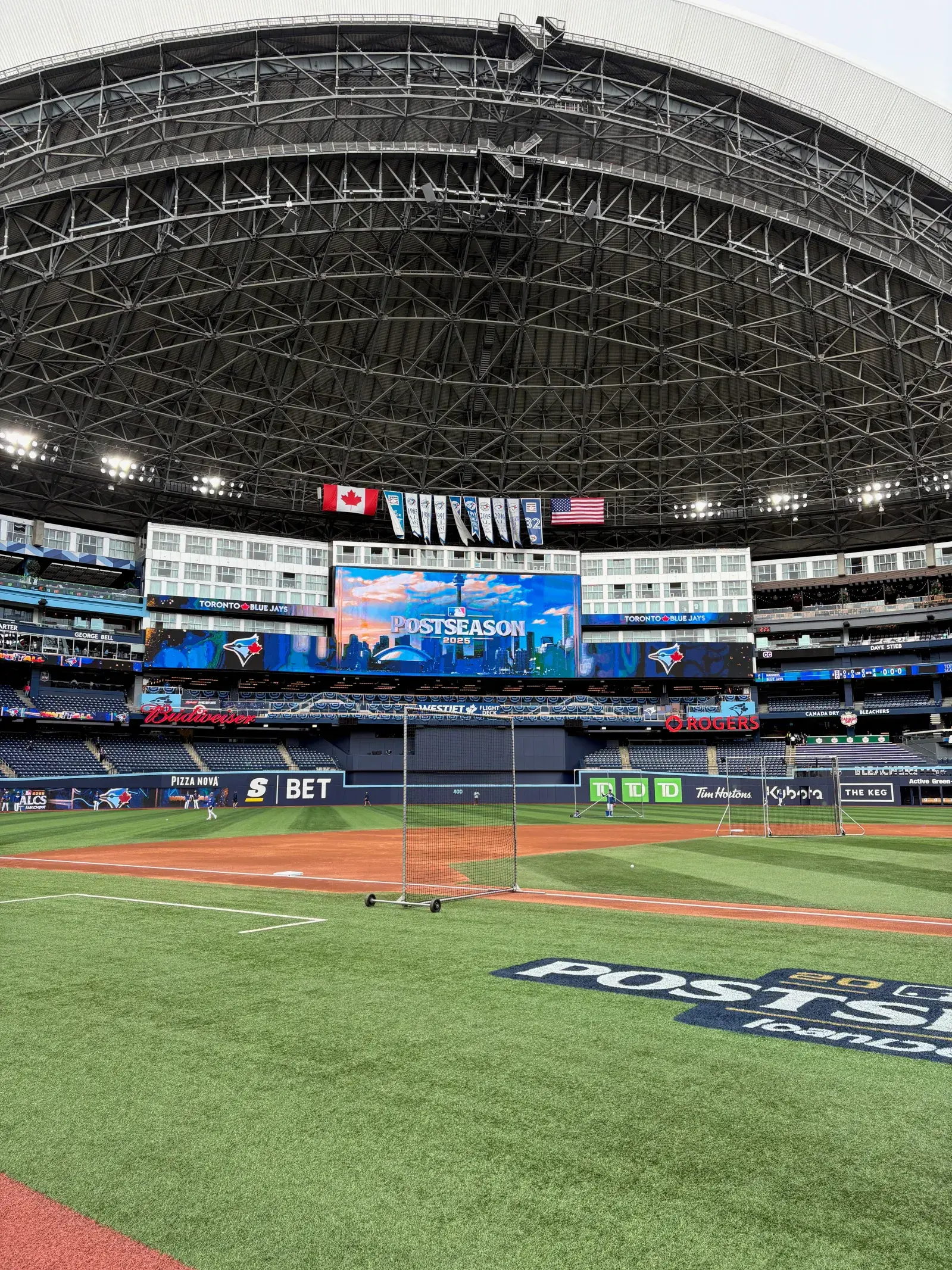Editor’s note: This is a preview of Sports Daily, Newsweek’s newsletter where sports lead Joe Kozlowski highlights what you might have missed from the wide world of sports.
You don’t realize how big a Major League Baseball stadium is until you’re standing behind home plate.
That may sound like a painfully obvious statement when you’re in a building with a 40,000+ capacity, but that’s what I thought while covering Games 1 and 2 of the ALCS in Toronto. Especially with the roof closed, the seats swallow you up. And that’s without a passionate crowd baying for blood.
But, at the same time, things also seem surprisingly intimate. From the field, you can almost count the seats around you. They were largely empty during batting practice but, again, it was easy to imagine the boos and jeers raining down.

That wasn’t the only challenge I got a glimpse of, though.
On Sunday, I was at the ballpark for about 10 hours. When I got home around 12:30 AM, I needed some time to wind down. Even with that, I struggled to settle in and sleep and was probably up past 2 AM. Then, on Monday, I was back at the stadium around 12:30 PM. I returned home about 10:30 PM, meaning I had spent 20 out of 31.5 hours in the Rogers Centre.
And I did that the easy way, without flights, layovers, hotel stays and all the other ‘fun’ that comes with travel.
I’m not naïve enough to think anyone will ever feel bad for someone sitting in the press box, but put it this way: There were moments when I felt out of it, like the days were blurring together. There were times when I felt the pressure, whether that was to make it from Point A to Point B in time (you don’t realize how much space is in the bowels of the ballpark until a press conference starts in five minutes and you’re down the first base line) or find the exact word for a story.
But I was feeling that as a relative nobody. I was allowed to zone out for five minutes; if I missed the start of a player’s availability, I could still get a transcript. I could ask for help on a story or set something aside to be cleaned up later.
Professional athletes, however, aren’t nobodies. They’re playing after late nights, on holidays, in the midst of lengthy road trips, etc. And none of that gets to be an excuse. (You could argue that the big-time pay checks make it all worth it, but that’s a different conversation.)
“This game is hard, and everyone makes sacrifices,” Toronto manager John Schneider said ahead of Game 2. “They’re away from their family, they’re here all day; you know what I mean? I think just being comfortable with the guys around you is huge, whether it’s players, whether it’s staff, talking to you guys every day. Yeah, the more comfortable you are, the better you’re going to perform for sure.”
As I’ve said before, that doesn’t mean we all have to hold hands and sing “Kumbaya” when a team loses. There’s still room for (reasonable) blame, analysis and personnel changes.
But being in the belly of the beast, even for a brief stint, does remind you of the human side of the game.
As if hitting a 100-mph ball with a round bat wasn’t hard enough!
Click here to get Sports Daily sent straight to your inbox every morning.


